
Thank you for studying God’s precious Word. Many items are 25% off during the month of September as you get back to the books!
Intermediate Hebrew Package
A Hebrew Word for the Day: Key Words from the Old Testament
DESCRIPTION
Unearth the wealth of treasures “buried” in the original language of Scripture! Watson’s 365-day devotional helps those who don’t know Hebrew achieve greater understanding of the Old Testament. Each entry includes a brief word study, a practical application for daily living, and related verses for further exploration. Includes Scripture, English, Hebrew, and Strong’s numbering indexes. The original volume is 384 pages, softcover from AMG, however this is a digital resource for theWord Bible Software.
Publisher’s Description
The purpose of A Hebrew Word for the Day is to share the richness of the Hebrew language words used in the Old Testament and help make them practical in the reader’s Christian living. Simply because words matter, the words of the Bible matter most. And in a day when words don’t seem to mean much, the need for precision in Christian doctrine and practice has never been more critical.
For each day of the year, Watson presents a brief word study and then offers an application to make that particular Hebrew word become real for practical living. To aid reinforcement, each day’s devotion ends with Scriptures for study to apply the truth learned that day.
Doc Watson fulfills his desire of many years to provide daily devotions that not only contain deep spiritual truth, but also are easy to read and understand. In our day of Relativism, the absolutes of God’s Word (and words) are desperately needed. These brief devotionals will enrich the mind, stir the soul, and empower the life of God’s people.
theWord Features:
- Devotional 366 daily sync
- Verse popups
- Fully searchable text
- Footnotes
- Easy navigation of topics via topics tree display.
- Scripture Index
- English Word Index
- Greek & Hebrew Word Index
- Strong’s Number Index
- Special Text Colors
- Normal: Text
- Hyperlink: H3845| Gen. 9:8
- Greek Transliteration: archon
- Hebrew Transliteration: YHWH
- Greek: εὐδόκησα
- Hebrew: יְהוָה
Courageous Faith: Life Lessons from Old Testament Heroes
Obstacles* Battles* Weakness* Fears*
Learn to face life’s greatest challenges with courageous faith in the power of God.
Faith is the key that unlocks the power of God in our lives. It enables us to live by His promises and experience His blessings in our personal lives. In COURAGEOUS FAITH, Ed Hindson encourages us to live beyond the normal limits of life and experience the unlimited power of God on a regular basis. based on the lives of the Hebrews heroes of the Old testament, this exciting book challenges us to overcome our barriers, conquer our fears, realize our goals, and start over when we fail. Relive the greatest moments of faith and triumph in the lives of the men of God who dared to believe His promises in their lives.
This practical and powerful study is based on the lives of the Hebrew heroes who dared to believe that God keeps His promises
ABRAHAM The Journey of Faith SAMSON Making Them Your Strengths
JACOB Hanging Tough in the Tough Times BOAZ Especially those Who are Different
JOSEPH Starting Over When it All Falls Apart DAVID Confidence in the Face of Danger
MOSES Overcoming Your Past JONATHAN Value of True Loyalty
JOSHUA Conquering The Opposition DANIEL Developing Spiritual Determination
GIDEON Overcoming Your Fears NEHEMIAH Leaving a Legacy You Can Be proud Of
JEPHTHAH Even When it Costs You
theWord Features:
- Verse popups (Nehemiah 9:1)
- Fully searchable text
- Easy navigation of topics via topics tree display.
Biblical Hebrew An Introductory Grammar
theWord Features
- Verse popups
- Terms explained popups
- Footnote popups
- Fully searchable text
- Easy navigation via topics tree display.
- Hebrew Lemmas
- Special Text Colors
- Normal: Text
- Hyperlink: Glossary| Gen. 9:8
- Page Number: [pg 21>
- Latin: matres lectionis
- Transliteration: šeqel
- Hebrew: א
Package: Wuest Word Studies & New Testament Expanded Translation
Kenneth Wuest was a long time Greek teacher at Moody Bible Institute back in 1920’s, ‘30’s, 40’s, and 50’s. (Yeah – he taught almost 30 years). At that time, Moody was one of the leaders in both dispensationalism and fundamentalism.
When he started writing, it was his intent to bring the nuance of the Greek language out for the non-Greek speaking English reader. This reviewer thinks that he hits that mark pretty well.
His first book was entitled Treasures from the Greek New Testament for the English Reader. This was a collection of twelve essays (which became twelve chapters – imagine that!) that are topical. His second book was a commentary on 1Peter entitled First Peter in the Greek New Testament for the English Reader (do you see a common theme?). It is pleasantly verse by verse.
Over the course of his writing career, he wrote commentaries on Mark, Romans, Galatians, Ephesians, Philippians, Colossians, 1Timothy, 2Timothy, Hebrews, 1Peter, 2Peter, 1John, 2John, 3John, & Jude. [If you’re keeping score at home, that means he missed Matthew, Luke, John, Acts, 1Corinthians, 2Corinthians, 1Thessalonians, 2Thessalonians, Titus, Philemon, James, and Revelation.]
In addition to his commentaries, he also wrote six topical books – all revolving around word studies in the Greek New Testament.
I’ve already noted that Wuest is both dispensational and evangelical in his doctrinal outlook. I also mentioned that in the era he wrote, Moody was considered a fundamentalist institution. That’s good.
I would like to point out that Wuest was not a KJV lover. He served on the translation team that produced the NASB. He actually published an entire expanded translation of the New Testament. But as you might think with his NASB background, his own translation is based on the Nestle Greek text, and not the Textus Receptus (which is the text behind the KJV). Personal kudos for rejecting the ASV; but he was one of the early proponents within the fundamentalist movement to depart from the KJV. He makes no apologies for correcting “error” in the KJV. For this reason alone, I don’t recommend this resource to anyone not grounded in bibliology.
Entry Length
Again, please note that his NT commentary covers only 15 books of the NT (of 27 total books); but because he left off four of the five longest books in the NT, his commentary actually covers far less than 50% of it. However, where he does have comments, they are more than sufficient. For me, they are right in the sweet spot between “sufficient” and “verbose” (I guess I like ‘em a little longer than sufficient…).
I like to provide an example from Rom 3:24 in these reviews. So here is Wuest on Rom 3:24 –
QUOTATION BEGINS – “Freely” is dōrean [δωρεαν], “freely, for naught, gratis, gratuitously, without just cause.” “Grace” is Charis [Χαρις] which signified in classical authors a favor done out of the spontaneous generosity of the heart without any expectation of return. Of course, this favor was always done to one’s friend, never to an enemy. But when Charis [Χαρις] comes into the New Testament, it takes an infinite leap forward, for the favor God did at Calvary was for those who hated Him. It was a favor clone out of the spontaneous generosity of God’s heart of love with no expectation of return. There are no strings attached to grace. It is given dōrean [δωρεαν], gratuitously. Of course, grace in the form of salvation is so adjusted that the one who receives it, turns from sin to serve the living God and live a holy life, for grace includes not only the bestowal of a righteousness, but the inward transformation consisting of the power of indwelling sin broken and the divine nature implanted, which liberates the believer from the compelling power of sin and makes him hate sin, love holiness, and gives him the power to obey the Word of God.
This grace shown the believing sinner is made possible, Paul says through the redemption which is in Christ Jesus. “Redemption” is apolutrōseōs [ἀπολυτρωσεως], the verbal form of which is apolutroō [ἀπολυτροω], “to redeem by paying the lutron [λυτρον] price.” There are three words translated “redeem,” agorazō [ἀγοραζω], “to buy in the slave market” (1 Cor. 6:20; 7:23, 2 Pet. 2:1), Christ bought us in this slave market of sin by His own blood; believers are His bondslaves; exagorazō [ἐξαγοραζω], “to buy out of the slave market” (Gal. 3:13; 4:5), the redeemed are never to be put up for sale in any slave market again; and litroō [λιτροω], “to set free by paying a price” (Tit. 2:14, 1 Pet. 1:18): the believer is set free from sin and free to live a life pleasing to God in the power of the Holy Spirit. The redemption price, the precious blood of Jesus, makes it possible for a righteous God to justify a believing sinner on the basis of justice satisfied. This Paul proceeds to explain in the next two verses. – QUOTATION ENDS
This might be a little longer than his typical comment, but you get the flavor here of how he writes.
Language Skills Needed
Did you remember the ending phrase in his titles? “…for the English Reader.” While a little bit of Greek is helpful (he does use words like “aorist,” “imperfect,” “middle voice,” and even “pluperfect,”), he actually does a pretty good job of explaining the importance of each of those words in his exposition. So Greek is helpful, yes, but not essential in profiting from this work. HOWEVER: keep reading for more info on the necessity of language skills.
Academic Target
Wuest and I are going to disagree on this. His work; my review. Wuest would tell you that his target was the Bible disciple who wanted to know more about his English Bible by expanding all of the nuances of the Greek into English. Fair enough. I would tell you that Wuest does not like the KJV, believes there to be translation errors in it, and those errors are due to the KJV coming from a corrupt Greek text. Hmmm. I have a problem with that.
Some of his comments are based on the Nestle text, which differs regularly from the TR. A knowledge of Greek will be very helpful – especially to those expositors who, like me, use the KJV/TR. When he makes an argument based on the Nestle text, it will be very helpful to know what the TR instead says. So due to his theological bias, I don’t recommend this resource to anyone who is not clear in his stance on bibliology. I have it tagged above as “Pastoral” for this reason.
And Then There’s All This Topical Content
Let’s not forget that he wrote six topical books, totaling almost another 100 chapters. From a personal perspective, this will be a harder tool to use (how are you going to find his interesting comments on “crowns” in a topical presentation?). But the writing is just as good, even though it may be hard to find.
Contents Conclusion
I like Wuest very much, as a matter of fact. It is too bad he did not finish all of the NT Books. I wish he had. And with the above mentioned foibles in mind, I recommend the use of his writing to you. This is a DDT approved Good Resource.
Twenty-First Century Biblical Commentary Series: Book of Revelation: Unlocking the Future
WILL THE HUMAN RACE SURVIVE IN THE FUTURE?
EVERYONE IS CURIOUS ABOUT THE FUTURE. There is something in human nature that wants to know what is going to happen next. God speaks to the need in our lives by revealing the future before it happens. That process is called a prophecy of future events. This book is a study of the prophecies in the book of Revelation.
The book of Revelation is the grand and noble conclusion to the Bible. It captives our attention, stirs our imagination, and points us to our glorious future destiny. It shows the living relationship between the risen Christ and His Bride, the Church. It also records the final days of this world and reveals the glorious new world yet to come. The book of Revelation gives us hope for the future when God will make “all things new” (Rev.21:5.
Dr.Hindson simplifies the message of the Revelation so that you can easily understand it for yourself. He surveys the general content of this captivating book of prophecy with a view to keeping the big picture in mind, rather than getting lost in all the details. His approach is to keep the study focused on the key issues in each chapter.
The Book of Revelation has been called the epilogue of the unfolding drama of redemption. It’s God’s road map to help us understand where human history is going. In the biblical record, human history begins in a garden and ends in the eternal city. It begins with tragedy and ends with triumph. It begins with man’s failure and ends with his exaltation. In between, there stands a cross! and on that cross, Jesus Christ changed the course of human history forever.
The message of the Bible represents the timeless truth of God. As each generation seeks to apply that truth to its specific context it becomes necessary for an up-to-date commentary to be created just for them. The editors and authors of the Twenty-First Century Biblical Commentary” have endeavored to do just that. They represent conservative, evangelical, and dispensational scholarship at its best.
theWord Features:
- Verse popups (Revelation 1:1)
- Fully searchable text
- Easy navigation of topics via topics tree display.
- Footnotes
- Special Colors
- Hyperlinks Rev 1:1
- Transliterated words (Greek/Hebrew/Aramaic, prophēteias)
Advance Hebrew Package
Advanced Greek Package
Package: BHS5 (Text) || ETCBC (WIVU) (Gloss, Lemma, Morphology, Clausing)
BHS5 Description
Biblia Hebraica Stuttgartensia (BHS) is known to be the definitive edition of the Hebrew Bible. It is widely regarded as a reliable edition of the Hebrew and Aramaic scriptures and is the most widely used original-language edition among scholars.
ETCBC (WIVU) Description
The ETCBC data is comprised of the text of the BHS5. It provides Lemmas which work in sync with our Hebrew dictionaries. Morphology is provided and explained via the morphology dictionary. An English gloss is provided for a quick overview of a word with pronouns in color. A transliteration is provided for those new to learning Hebrew.
Sentence markers indicate where a sentence begins. Clause markers indicate a start to a clause while also explaining the clause for example: “Type: NominalDomain: NarrativeKind: Nominal”. Likewise with Phrase markers indication of start and explanation is given for example: “Type: NominalDetermination: determinedFunction: Subject” all of these markers are toggled via the F key.
The text contains both Ketiv and Qere variants. Ketiv variants are displayed in brown color, Qere in blue. Qere variants can be toggled on/off with the R key.
Lastly the pointings can be toggled on and off using the V key for those who are interested in reading the consonants with out the distraction of the points.
theWord Features:
- BHS5 Text
- Lemma
- Morphology
- English gloss (on hover over word)
- Transliteration (on hover over word)
- Sentences markers.
- Clauses markers with explanation
- Phrases markers with explanation
- Sentence/Clauses/Phrases. To toggle on/off these use the F key.
- The text is pointed Hebrew. To toggle on/off pointings use the V key.
- The text contains both Ketiv and Qere variants. Ketiv variants are displayed in brown color, Qere in blue. Qere variants can be toggled on/off with the R key.
- Morphology Dictionary (in book view)
⦁ Morphology for the BHS5/ETCBC
⦁ Fully searchable text
⦁ Easy navigation of topics via topics tree display.

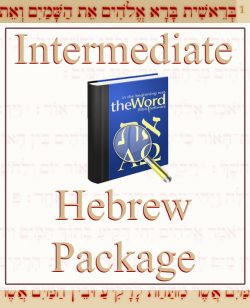
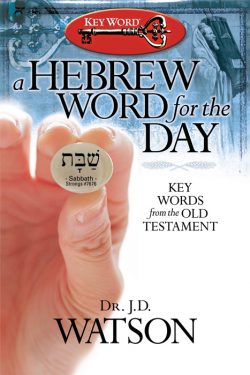
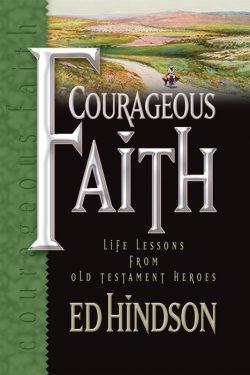
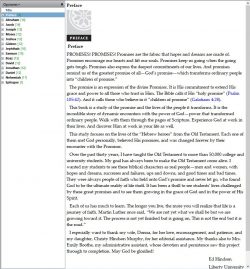
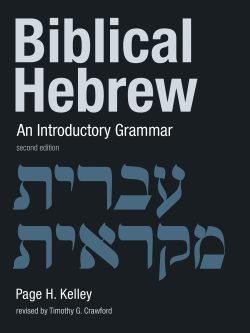
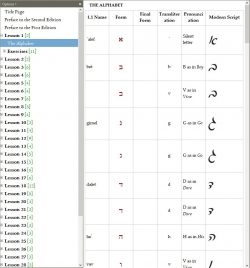
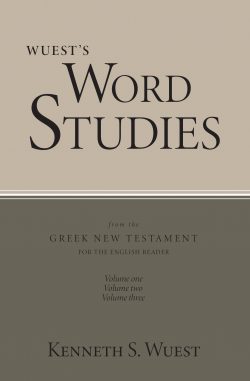
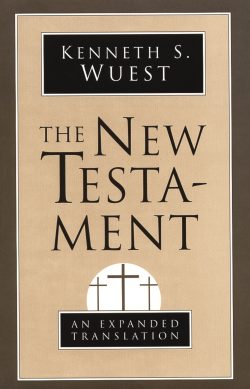

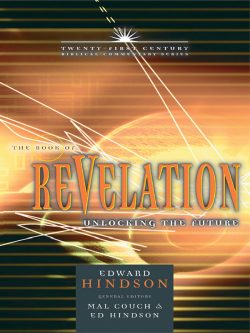
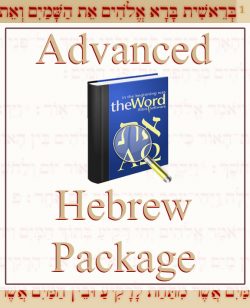
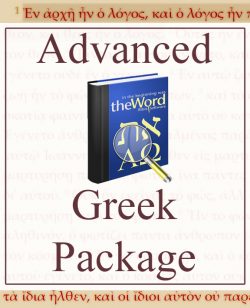
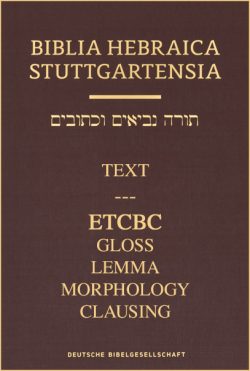
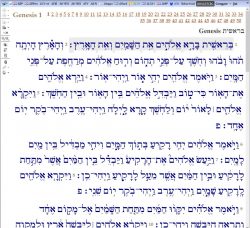
Package: NIV Application Commentary: New Testament
Description
The NIV Application Commentary helps you communicate and apply biblical text effectively in today’s context.
To bring the ancient messages of the Bible into today’s world, each passage is treated in three sections:
This unique, award-winning commentary is the ideal resource for today’s preachers, teachers, and serious students of the Bible, giving them the tools, ideas, and insights they need to communicate God’s Word with the same powerful impact it had when it was first written.
Volumes and authors in The NIV Application Commentary, New Testament Set: Matthew – Revelation, 20-Volume Collection include:
$688.80$516.60 Add to cart